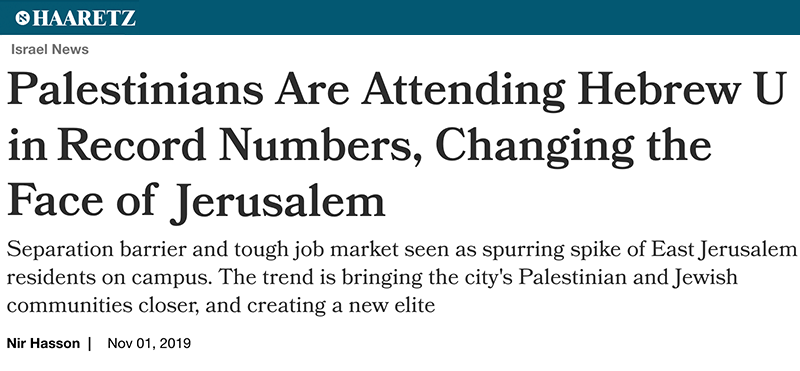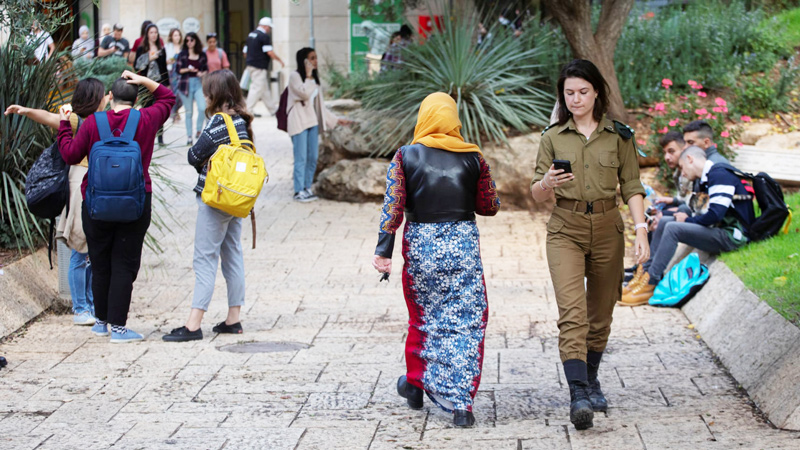

“The Forum,” as anyone who’s studied at the Hebrew University of Jerusalem knows, is the central plaza on the Mount Scopus campus, where students in the law, humanities and social science faculties congregate. It’s also a good barometer of the human composition of the university.
Anyone who wandered by there this week as the new school year began could sense that the composition of university’s student body has undergone a change. Here and there you see a few soldiers in uniform, the result of a controversial partnership between the army and the university in a program called Havatzalot, designed for soldiers in military intelligence. There were also some uniformed policemen, partaking in another partnership, a few ultra-Orthodox men, a Christian priest, some secular and religious Jewish students.
But oddly enough a large group of Palestinian women gathered near a sign that said “A Jewish soul – building a connected future.” This year, more than ever before, a Palestinian presence is evident on the campus.
The way the Forum looks concords with data showing a sharp surge in the number of Palestinian students from Jerusalem attending the university in recent years. The number of Palestinian students in preparatory courses has doubled this year, climbing to 410 from last year’s 210. Although there was a small drop in the number of Palestinian students accepted into bachelor degree programs, due to changes in requirements, the overall trend shows a growth of hundreds of percent in the last decade. These are still relatively small numbers compared to the total student body, and in comparison to the number of Palestinians from Jerusalem attending Palestinian academic institutions. But this is a relatively new phenomenon, an additional and dramatic stage in a growing affinity between Israeli and Palestinian societies. Many people believe this trend will eventually change the face of the university and transform Jerusalem, as well.
Traditionally, residents of East Jerusalem have gone – and still do – to universities in the West Bank and in Arab countries. Even today, most Palestinian students in Jerusalem study in Palestinian and Arab universities. But in the last decade there has been a growing trickle of Palestinians from Jerusalem attending Israeli academic institutions. Heading the list is the Azrieli College of Engineering, the David Yellin College of Education and Hadassah College. In recent years, Hebrew University, the flagship academic institution in Israel has also started accepting Palestinian students in large and growing numbers. Up to a decade ago there were no more than a few dozen Jerusalemite Palestinians – in contrast to Israeli Arabs from northern Israel – went to Hebrew U. Last year there were 586 students from East Jerusalem (other than the preparatory year). Eighteen were doing doctorates and 69 were doing other graduate degrees. The most popular degrees were in education, social work, communications, international relations and nursing. There were also some students in biology, electrical engineering, computer science and a few in medical school.
Many people familiar with the subject note that the construction of the separation barrier is a major reason that Palestinians living in Jerusalem have started seeking their future in Israeli institutions.
One could add the fact that regulatory changes have made it harder for people with degrees from Palestinian institutions to work in Israel. Another reason behind opting for Israeli higher education is the generous funding provided by the Council for Higher Education, which enables universities to offer stipends to nearly every Palestinian student who meets the requirements and wants to take the preparatory year.